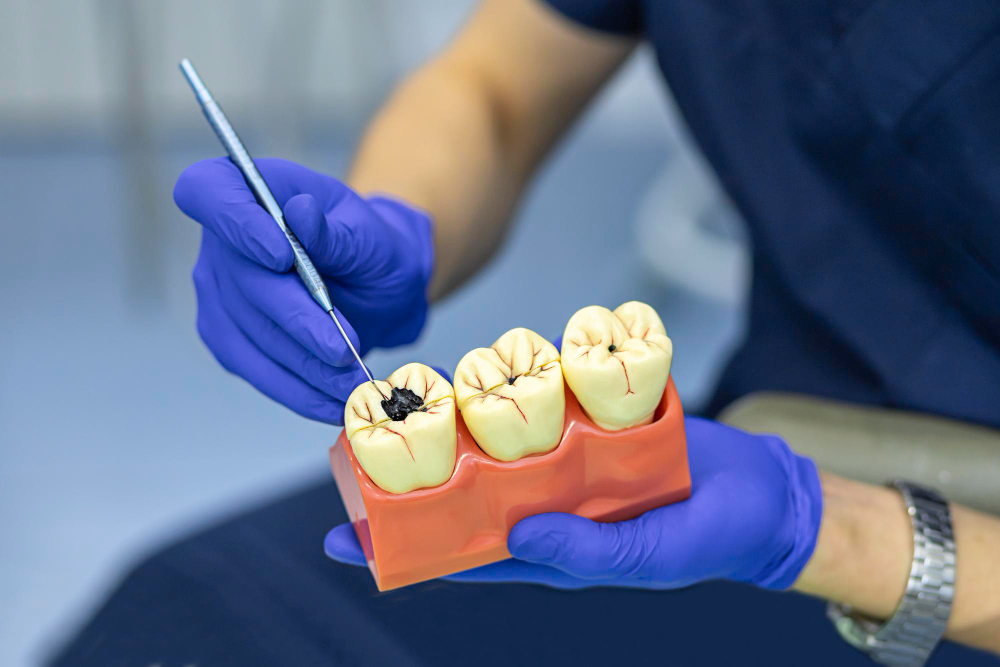The greatest approach to guarantee that your teeth and gums remain healthy for the rest of your life is via preventive dental treatment, which begins at home with consistent brushing and flossing. But as a preventative step, most dental experts advise visiting the dentist twice a year for tooth cleaning and checkup.
Getting regular checkups might seem like a burden because of how hectic life can be. However, those who have their teeth cleaned and inspected twice a year are significantly less likely to develop gum disease, tooth decay, and other major illnesses, including diabetes, dementia, and cardiovascular disease. Another reason to visit the dentist in advance is that the early stages of gum disease and tooth decay otherwise go unnoticed.
Warning Signs you should not Ignore!
Here are some worrisome indicators: you should see a dentist before you continue to ignore your dental health.
1. When Your Tooth Starts Aching
A toothache is a big clue for scheduling an urgent dental appointment. Aching in your teeth is not normal and it can be due to decay, infection, gum diseases or trauma . Even though the underlying problem might be small, it is also be fairly serious, which is more likely if you have not visited the dentist frequently.
2. When The Sensitivity of Your Tooth Increases
The sensitivity of each person’s teeth varies. During your next routine visit, bring up any sensitivity you occasionally or infrequently encounter with your dentist. However, if it has just started, is severe, or occurs regularly, it can signify that your enamel is deteriorating. Your tooth being sensitive to heat, cold, sweet or sour could be also due to dental caries or trauma.
3. Having Frequent Bad Breath
Even the healthiest among us occasionally have bad breath, which is especially prevalent in smokers, drinkers, and eaters of particular foods. Persistent foul breath is a sign of gum disease or another major oral health issue despite practicing good dental hygiene.
4. Gums That Swell Up Easily
It’s not natural to bleed when you floss, brush your teeth, or eat food. If it happens when you are brushing, it can mean that your bristles are too stiff or that you are brushing too vigorously. If you have trouble flossing, it may be because your technique is poor and your gums are being harmed. It is the most common sign of periodontal disease, which, if neglected, can become fairly dangerous.
5. When Your Mouth Gets Dry
Everybody occasionally has a dry mouth, frequently caused by insufficient water. However, if you consistently have a dry mouth, this may be a sign of xerostomia. Because your glands don’t make enough saliva, you are more likely to develop gum disease and tooth decay if xerostomia is not addressed.
6. Noticing White Spots on Your Tooth
Early on, cavities may be difficult to detect with the naked eye. White patches on the teeth are frequently the first visible sign of dental decay. Acids are eroding the enamel and causing these white patches. If the decay is not addressed, it will eventually reach your dentin and worsen.
7. Persistent Headaches in the Morning
Do you often have headaches after waking up? Even though you might not link dental care to headaches, recurring morning headaches are frequent signs of nocturnal bruxism. The headaches could be brought on by excessive jaw clenching and teeth grinding while you sleep.
8. When Your Teeth Begin to Shift Slightly
To be able to retain your permanent teeth for the rest of your life would be a blessing. A tooth or teeth that appear to be shifting or moving may signify infection, bone loss, or other oral health problems. Those teeth will gradually loosen and fall out if not corrected. Additionally, keep an eye on any adjustments to your bite and talk to your dentist about them.
9. When The Gum Tissue Starts Wearing Away
As we age, some gum recession is normal. However, one of the most dangerous signs of gum disease is receding gums. That damaged tissue cannot grow again. The tooth roots are left exposed cause sensitivity, and periodontal pockets are formed, which collect plaque and tartar and further infection.
10. Frequent Occurring of Lumps And Lesions
Canker sores often get cured on their own, but if you get them regularly, you should talk to your dentist about your treatment options. An individual should not disregard bumps and lumps, and white patches on the tongue, tonsils, inner cheek and mouth roof may be signs of thrush, a fungal infection.
Summing Up:
Your total health, including your oral health, is crucial. So start giving your mouth the attention and care it requires. Contact your dentist right away to make an appointment.
If you are looking for a reliable Dentist in Mohali, India; then the Aesthetic Dental – Multispecialty Dental clinic is here to serve you.


Recent Comments